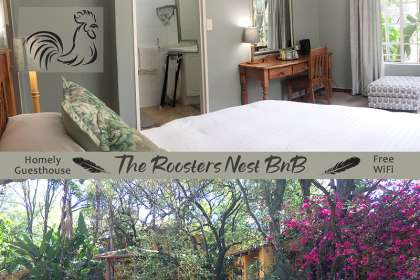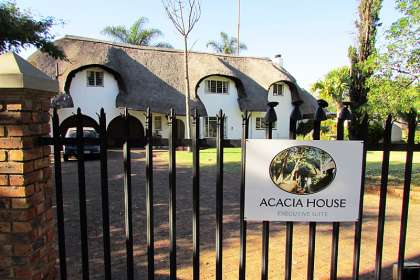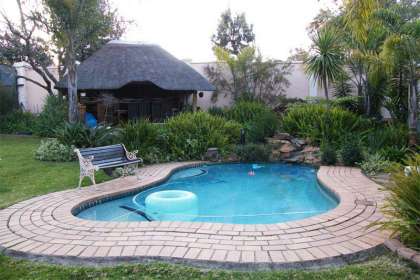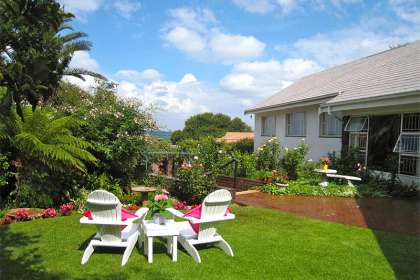Liliesleaf Farm
Liliesleaf Farm
Liliesleaf Farm was the site responsible for breaking the resounding political silence of the 1960s and represents a beacon on the landscape of national and international memory. A farm of 28-acres, Liliesleaf had been purchased in 1961 by the South African Communist Party as a meeting place for the Politburo. Liliesleaf, 12 miles from the Johannesburg city centre, was purchased because it was in a secluded and isolated area of Rivonia at that time.
In 1960 South Africa was in the grip of an overwhelmingly oppressive apartheid regime and on 21 March 1960, a peaceful protest against apartheid laws resulted in the Security Police killing 67 unarmed demonstrators and injuring over 180. This was The Sharpeville Massacre, and many of those killed and injured were women and children. There was an immediate uproar amongst the oppressed and the following week saw demonstrations, protest marches, strikes and riots around the country. The Communist Party (in 1950) and the African National Congress (in 1960) had been banned and were forced to go underground. The events of Sharpeville were seminal within themselves as they forced the ANC to move away from passive resistance to armed struggle. The purchase of Liliesleaf coincided with the ANCs shift to armed struggle.
It was on 11 July 1963 that members of the Security Police raided the farm after an anonymous tip-off that Walter Sisulu was in hiding at Liliesleaf. The leadership that assembled had done so with the intention that this would be their last gathering at Liliesleaf and that after discussion about Operation Mayibuye, ironically translated as "The Return", they would relocate. The consequences of the raid were disastrous to the internal struggle and the liberation movement. The raid on Liliesleaf led to the arrest of a number of key leaders of the High Command, stalling the momentum of the liberation struggle in the process. The arrests and subsequent trial however, catapulted South Africa's prevailing socio-political conditions into the international spotlight.
Liliesleaf aims to bring the events that took place in Rivonia over 45 years ago into South Africas current socio-political context by allowing the original infrastructures to recreate the living and working environment at the time of the raid. The restoration process was a collaborative effort between archaeological findings, oral recollections and archival and historical research to document the history of the liberation struggle for current and future generations.
The Resource Centre sustains the tradition of intellectual discourse that took place at Liliesleaf through its collection of historical documents and literature. It provides academics, scholars, the public, and local and international visitors access to historical material, records and critical theoretical writings and analyses of the Liberation Struggle. In addition to the archive collective on-site, the Resource Centre library houses 3000 books and over 500 hours of interview footage. The collection of this material, including oral recollection and interviews, began in 2003.
The Museum consists of Manor House, the Thatched Cottage, the Outhouse Buildings and the Water Tank Coal Bunker. The Museum offers a snapshot of South Africas recent history.
Liliesleaf has seamlessly integrated the authenticity of the original buildings structures with two newly constructed buildings, being the Resource Centre and Liberation Centre, which marks the visitors journey of enlightenment from struggle, to liberation to transformation. The Liberation Centre boasts the following contemporary facilities, a state-of-the-art auditorium which shows a 15-minute introductory film, the 1963 Coffee Shop - "Cedric" as well as permanent and temporary exhibits.
Liliesleaf Trust welcomes you to browse through their site, read the stories, and retell them. One of the objectives of the Trust is not only to preserve the narrative of their historical and political past, but to ensure that these stories are circulated and known, and that the hardships endured by the men, women and children who fought for so long can be heard.
Liliesleaf is open weekdays from 08:30 to 17:00 and weekends from 09:00 to 16:00.
Visitors to Liliesleaf are afforded access to all areas of the site and are issued with a pass card should they wish to leave and return later on in the day.
Directions to Liliesleaf Farm
From Sandton:
Travel North towards Rivonia / Sunninghill along Rivonia Road. Past the Rivonia Centre (on right hand side), turn left into 12th Avenue. Travel along 12th Avenue and turn right into Rietfontein road, go through the security boom and then turn first left into Winston Avenue, and then immediately left into George Avenue. The entrance to Liliesleaf Farm is located on the right hand side of the road - 7 George Avenue.
From N1, Western Bypass:
Travel South West towards Randburg / Bloemfontein. Take the Rivonia Road off ramp. Turn left in Rivonia Road - heading south back towards Johannesburg. Turn right into 12th Ave. Turn right into Rietfontein road, go through the security boom and turn left into Winston Avenue; and then immediately left into George Avenue. Liliesleaf Farm is located on the right hand side.
Accommodation Near Liliesleaf Farm
The Syrene Boutique Hotel
Hotel / Boutique Hotel Accommodation in Rivonia
1.2km from Liliesleaf FarmThe Syrene is a friendly, professionally run four star boutique hotel featuring the luxury of business class travel. As the name suggests our guests will experience a quiet, private and tranquil setting offering best in class accommodation... …see more for bookings / enquiries and info.
Rivonia Premier Lodge
Self Catering Apartment, Flatlet Accommodation in Rivonia
1.4km from Liliesleaf FarmRivonia Premier Lodge offers bed and breakfast and self catering and is strategically located in Sandton, north of Johannesburg, with easy access to major highways. Situated in a quiet cul-de-sac with a large rambling garden. Guests can relax on the pool …see more for bookings / enquiries and info.
Grosvenor Inn
Bed & Breakfast Accommodation in Bryanston, Johannesburg
4.1km from Liliesleaf FarmGrosvenor Inn provides spacious bed and breakfast accommodation in Bryanston, Sandton, Johannesburg. "The most outstanding quality of the Grosvenor Inn is the welcoming and friendly atmosphere created by the management and staff who go to great lengths... …see more for bookings / enquiries and info.
The Roosters Nest BnB
Bed & Breakfast Accommodation in Glenferness
5.1km from Liliesleaf FarmWelcome to The Roosters Nest BnB, a family owned and -run guesthouse which is set in beautiful tranquil country surroundings, and boasts a beautiful lush garden with lots of old, big trees which offer a restful country feel. …see more for bookings / enquiries and info.
Acacia House Executive Suite
Bed & Breakfast Accommodation in Kelvin
5.5km from Liliesleaf FarmAcacia House Executive Suite offers bed and breakfast and dinner, bed and breakfast accommodation in Kelvin, a tranquil suburb of Sandton, Johannesburg. An exclusive private suite, comprising accommodation for a single business professional or a couple. …see more for bookings / enquiries and info.
Littlefields Luxury Self Catering Suite
Self Catering Apartment, Flatlet Accommodation in Randburg
7.6km from Liliesleaf FarmModern Luxury Self Catering Suite in Olivedale (Non Smoking) with:Separate Entrance. Smoking Section Outside Secure High Wall with Safe Parking. In Safe Boomed off Area. Marble and wooden floors. Combined Lounge Kitchen with Full DSTV... …see more for bookings / enquiries and info.
Glenda's Guest Suites
Self Catering Apartment, Flatlet Accommodation in Blue Hills
8km from Liliesleaf FarmSet in the tranquility of the enclosed and secured equestrian estate, Beaulieu, Midrand. Upmarket, attractive accommodation at reasonable prices. Designed for the corporate and equestrian markets, but suitable also for private use, our comfortable... …see more for bookings / enquiries and info.
The Residency Jellicoe
Self Catering Apartment, Flatlet Accommodation in Johannesburg Area
10km from Liliesleaf FarmLocated centrally in the affluent and upmarket area of Rosebank, The Residency Jellicoe offers our valued guests the option of three different apartment types: A hotel room, a one-bedroom apartment, or a two-bedroom apartment, allowing for the... …see more for bookings / enquiries and info.
Hoopoe Haven Self-catering Cottages
Self Catering House, Cottage, Chalet Accommodation in Chartwell
10.1km from Liliesleaf FarmHoopoe Haven situated in beautiful Chartwell, Gauteng. It is a place to relax and unwind in the peace and quiet of the countryside. There's variety of self-catering accommodation available to suite groups from 1 person to 50. …see more for bookings / enquiries and info.
Panhandle Place Cottages
Self Catering Apartment, Flatlet Accommodation in Johannesburg Area
10.3km from Liliesleaf FarmPanhandle Place Cottages are lovely self-catering units in a beautiful garden setting with views of the Johannesburg city skyline. We are centrally placed in an old Johannesburg suburb with tree-lined streets, safe for walking and jogging. …see more for bookings / enquiries and info.
- Bryanston Organic and Natural Market (2.62km)
- Sisters with Blisters - Walk against abuse (2.90km)
- Jozi X (2.91km)
- The Teatro at Montecasino (4.31km)
- Oktober Bierfest Johannesburg (4.35km)
- Montecasino (4.38km)
- Montecasino Leisure Complex (4.49km)
- Pieter Toerien Montecasino Theatre (4.49km)
- Kyalami Race Circuit (4.85km)
- Bryanston Country Club (4.95km)
- FNB Art Joburg (6.26km)
- Easter Celebrations on Nelson Mandela Square (6.27km)
- Go Glamour - Sandton (6.27km)
- Rooms On View (6.27km)
- Nelson Mandela Square (6.35km)
- Sandton City (6.50km)
- Kyalami Country Club (6.59km)
- Guthrie's Shooting Range (7.26km)
- Inanda Africa Cup Polo Tournament (7.47km)
- Midrand Urban Market (7.73km)












